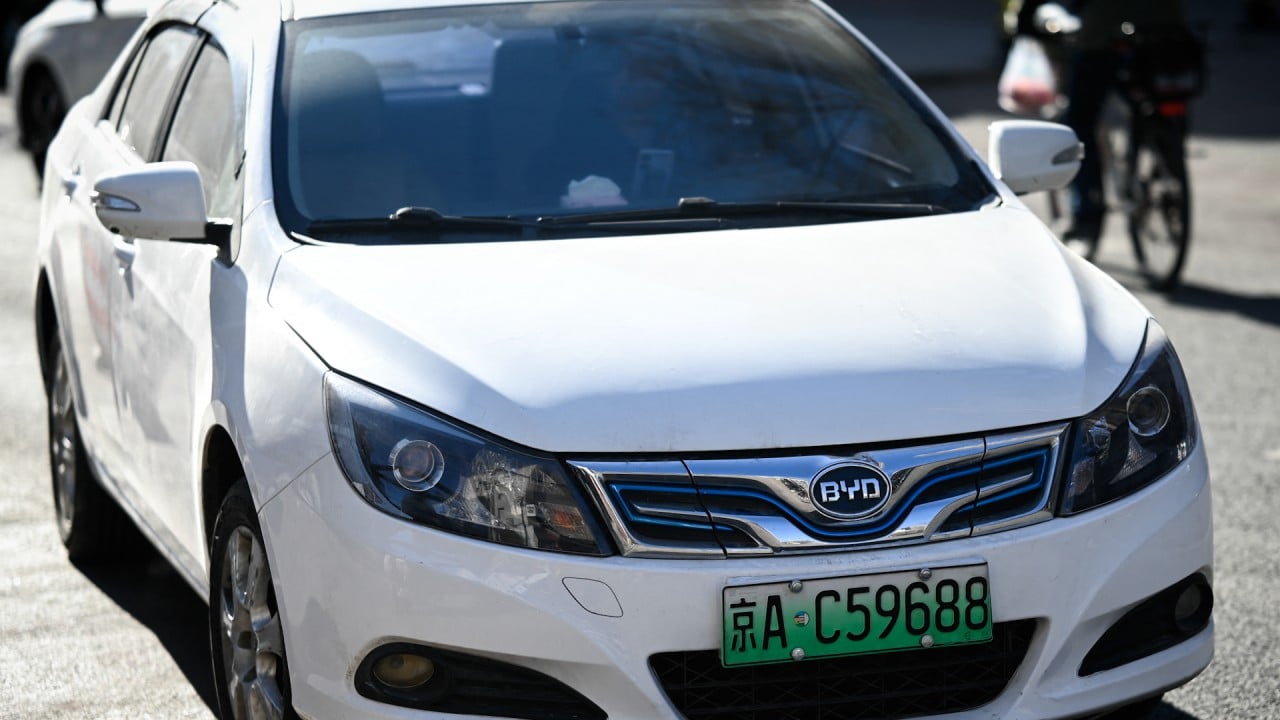
China unearths million-tonne lithium deposit, heating up global resource race as Thailand also boasts big find
- Discovery of silvery-white alkali metal deposit known as ‘white gold’ could make its way to China’s battery makers, in boon to already-outsized EV battery industry that is underpinning economic growth
- Despite having only about 7 per cent of world’s identified lithium resources, China refines around half of the world’s lithium and relies heavily on imports
China says it has discovered a massive deposit of lithium, a key material in the country’s flourishing new-energy sector that has emerged as a pillar of economic growth.
And the revelation comes at a time when China has doubled down on efforts to explore domestic resources as it aims to amp up energy and resource security against the backdrop of an intensified global race for core resources that will help power growth.
The Ministry of Natural Resources said the huge reserve – about 1 million tonnes of the silvery-white alkali metal that is often called “the new oil” or “white gold” – was found in Yajiang county, Sichuan province, the Xinhua Insight news outlet reported on Thursday.
That discovery will increase China’s supply of a resource needed for lithium batteries, which are critical to many mass-market electric vehicles sold around the world.
China has been trying to market itself as the renewable battery centre for the world
China already had about 7 per cent of the world’s identified lithium resources, ranking sixth in the world after Bolivia, Argentina, the US, Chile and Australia, according to the US Geological Survey.
But it refines around half of the world’s lithium and relies heavily on the overseas market for the material.
Thailand, which is making strides toward becoming a major EV production base in Asia, also said recently that it had discovered two potential types of lithium sources, one of which has estimated reserves of about 14.8 million tonnes. This is equivalent to 64 per cent of the discovered lithium resources in Bolivia, the world’s largest holder of them, according to Thai media reports last week.
“China has been trying to market itself as the renewable battery centre for the world,” said James Chin, a professor of Asian studies at the University of Tasmania. The new source of lithium, he said, could help bring further investments in China’s EV battery sector.
“If you look at battery R&D, some of the best batteries are the ones that come out of China now,” Chin said.
US tariffs on Chinese imports might increase in 2024, analysts say
China turns out roughly 70 per cent of the world’s electric vehicle batteries, according to the China EV100 think tank, which aims to boost the development of the EV industry.
Last year, the value of China’s combined exports of lithium batteries, solar batteries, and new-energy vehicles topped 1 trillion yuan (US$139 billion) for the first time, according to customs data. All three products use lithium, and they carry added economic significance as China is struggling to shift from traditional sectors such as property to fuel growth over the long run.
The minister of natural resources called the Yajiang discovery a “major breakthrough”, according to the Xinhua report.
China is most likely to use the mine’s lithium for domestic production rather than export it, which would in turn help the nation’s EV battery makers excel against competitors such as South Korea, said Alicia Garcia Herrero, chief Asia-Pacific economist with French investment bank Natixis.
So far, lithium discovered in China is mainly in Sichuan, Qinghai, Tibet, Xinjiang and Jiangxi.
Lithium carbonate, widely used in lithium-ion batteries, can also be extracted from saltwater lakes, and China has 1,500 such features, giving it what Xinhua Insight called the “potential to explore even more lithium resources”.
Recycling key to China’s self-sufficiency ambitions for the ‘new oil’
“The supply of critical minerals is a growing concern and a strategic topic for many countries, China included,” said Yuan Sheng Yu, a managing director at Lux Research in Singapore. “The recent major discovery further cements China’s dominant position in the lithium supply chain and subsequently its global position in batteries and electric vehicles.”
However, Yu noted that lithium projects remain “highly risky” with “not insignificant” delays between resource discoveries and their use in viable commercial projects.



